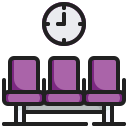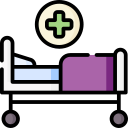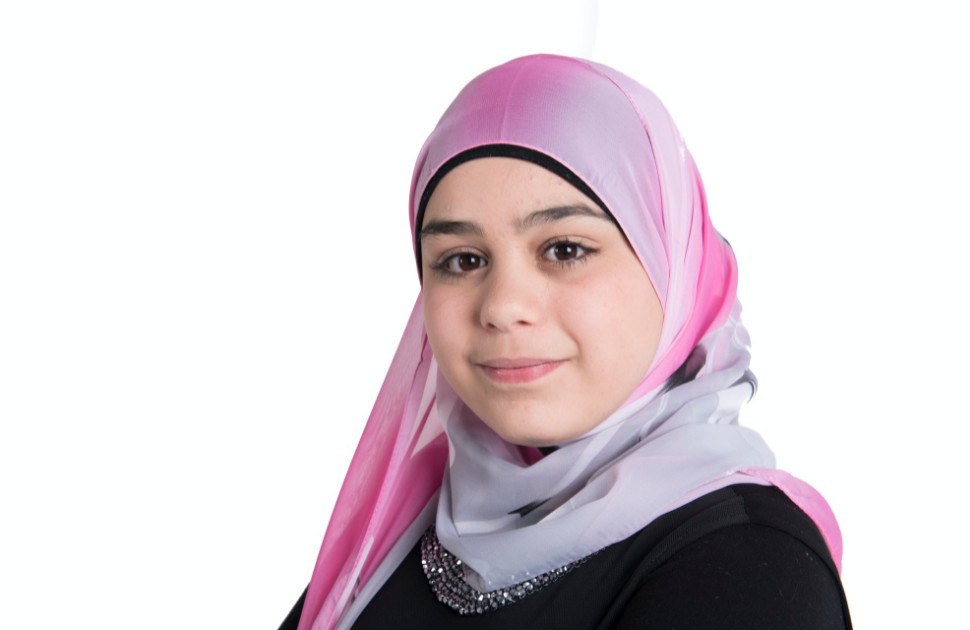
Whether you are dropping in for an appointment with a physician, making your way to our Emergency Department, or staying with us overnight — we know coming to CHEO can sometimes feel intimidating. In this section you'll find everything you need to know to make your visit a success and as stress-free as possible!
Construction at CHEO: plan ahead and give yourself extra time!
We're working to grow our campus with the construction of CHEO's new Children Integrated Treatment Centre (1Door4Care). This includes a new parking garage to accommodate more people and a tunnel to connect the two buildings.
Visit our Maps and Locations page for latest information
Parent, caregiver and visitor presence policies
Please review the following information before arriving at CHEO.
Parents and caregivers are important members of the care team. They actively work with us to provide vital health information only they know and give emotional support in the way only a parent or caregiver can.
For infection prevention and safety reasons, we have limits on how many parents, caregivers and visitors can be onsite at one time. We also limit the number at the bedside.
We appreciate your patience and understanding in keeping everyone safe, particularly during the peak viral season.
Allowed number of parents, caregivers and visitors
Last updated: April 2025
Clinic and Surgical Day Unit appointments
- TWO parents or caregivers are allowed to accompany children and youth while at CHEO for clinic and Surgical Day Unit appointments.
Emergency Department visits
- ONE parent or caregiver is recommended to accompany children and youth while at CHEO's Emergency Department.
Staying at the hospital (admitted to CHEO's inpatient units)
- A maximum of TWO parents or caregivers are permitted at the bedside at a time.
Visitors
- A maximum of TWO people are permitted at the bedside at a time.
Exceptions to these rules
We recognize that some families (e.g., people with disabilities) require additional support to help the patients, parents or caregivers. If you are coming to Emergency, please discuss your need for an exception upon arrival at CHEO Emergency. If you are staying as an inpatient, please discuss this with your care team.
Who can't enter
Parents and caregivers who do not pass the entrance screening.
It is important to us that your child or youth receives the care they need. If you require an exception to any of our caregiver/visitor policies to ensure that your child/youth can access care, please contact a member of your care team or reach out to CHEO's Patient Experience team (experience@cheo.on.ca or 613-737-7600 ext. 3078).
Self-screening
To make sure we are always putting safety first and minimizing any chance of transmission of infections, we ask anyone who comes to CHEO, to self-screen before/upon entering.
Fill out the self-screening form online ahead of time and follow our signs when you arrive. Greeters will be available at the entrance to help if you have any questions.
Where to enter
All children, youth, parents/caregivers and visitors must enter through the Main Entrance unless you are seeking care from our Emergency Department. Other entrances are closed.
Frequently asked questions about coming to CHEO
What is the difference between a parent/caregiver and a visitor |
|
Parent/caregiver: Someone who is over 12 years old and helps a child or youth with activities of daily living – e.g., parent, grandparent, older sibling, legal guardian, etc. A parent/caregiver can be designated by a patient. A parent/caregiver is never considered a visitor because they are a vital part of the care team. Visitor: Someone who is part of a child's or youth’s family or support network (e.g., sibling, extended family member, friend, etc.) but not a designated parent or caregiver. |
Will I be required to wear a face mask while at CHEO? |
|
Visit our Masking at CHEO page for up-to-date information: |
"What should I expect?" and other frequently asked questions
 At CHEO for the day
At CHEO for the day
For an appointment, Emergency Department care, surgery or another procedure
|
What to bring |
|
Health coverage information Be sure to bring your:
A parent or legal guardian will have to sign the necessary Ministry of Health consent forms for children and youth under 16 years of age. Personal Health information Please bring:
Items for you Depending on how long your appointment, test or procedure will be, you may want to bring:
Is it safe to bring personal items? |
|
What to expect in the Emergency Department |
| Visit our Emergency care page to find helpful information on what to expect in CHEO's emergency department. |
 At CHEO for a longer stay
At CHEO for a longer stay
In one of our inpatient units
|
What to bring |
|
Health coverage information Be sure to bring your:
A parent or legal guardian will have to sign the necessary Ministry of Health consent forms for children and youth under 16 years of age. Personal Health information Please bring:
Items for you Depending on the length of stay in hospital, you may want to bring:
Make sure to mark everything with your name. CHEO mom and blogger, Chloe Girvan, has written a helpful article on what parents should bring with them for a hospital stay. We encourage you to review it. Is it safe to bring personal items? |
|
Where will your child or youth be staying? |
|
There are eight inpatient units at CHEO, including Neonatal Intensive Care and Pediatric Intensive Care. Sometimes a child may be moved within a unit, or moved to a different one, usually because of space pressures. You will be notified in advance if this is to happen. There are no private rooms, however there are single rooms used for isolation purposes. If your child or youth does not need to be isolated, they will share a room with one or two other children or youth. |
|
Who will be caring for my child or youth? |
|
A whole team of professionals will look after your child or youth when you come to CHEO. Health-care teams in the hospital are grouped as Patient Service Units (PSUs). These groupings include inpatient and outpatient teams so that no matter where your child is in terms of their recovery, they will remain under the same PSU according to their diagnosis. This makes it easier to have continuity in your child or youth's care. The PSU health-care teams are made up of many different professionals including doctors, nurses, social workers and others. Which team members are involved will depend on your child's or family's needs. |
|
How can I check-in on my child or youth? |
|
As a parent and valued member of your child's care team, you can call CHEO any time for updates. The unit where your child is staying can be reached through the hospital switchboard at 613-737-7600, or directly through the unit's phone number. Shift change is a busy time and outside calls will not be taken between 7:30-8:30am and 7:30-8:30pm. Other than these times, we're happy to take your calls at any time. Information is always readily available through your child's nurse, who can also help you reach any other of the health-care team members caring for your child. Updates and information will only be supplied to the parent or legal guardian of a child. We appreciate you letting other family members or friends to check with you, and not the unit, for information. Respecting the privacy of other children, youth and their families is extremely important. |
|
Head to Toe suicide screening questions |
|
To intervene early with children and youth experiencing suicidal thoughts, CHEO has developed the Head to Toe assessment program. It is now standard practice for all children and youth over the age of 12 to be screened for suicide upon being admitted to CHEO. |
|
What activities are available? |
|
No matter how long you're at CHEO, here are other things to keep in mind:
|
Allergy alert! |
||||
|
Some of our children, youth and staff have severe allergies, so please remember:
|
||||
|
Preventing the spread of infection |
||||
|
CHEO is a safe place for kids, caregivers and staff. We have an infection control and prevention team who makes sure CHEO upholds infection prevention and control standards and practices in accordance with current provincially and/or federally legislated requirements, and/or currently accepted professional guidelines and recommendations. This includes:
And here's how you can help:
|
||||
|
Searching for restricted items |
||||
| There are times when we need to check patients for things that could cause harm to themselves or others. We do this when we feel a search is needed to keep everyone at CHEO safe. Restricted items can be any personal belonging that could harm a patient or someone else. Learn more about a restricted items search. | ||||
|
Service and emotional support animals |
||||
|
At CHEO, service animals are allowed and, in some instances, emotional-support animals may be able to accompany people to their appointments. If you are a child, youth, caregiver or visitor and have an emotional-support animal that you would like to accompany you to your appointment, please consult with your clinical team before the appointment to confirm whether accommodations can be made for the support animal to visit.
Expected behaviour for service and emotional-support animalsAny animal onsite must be fully vaccinated, in good health, and must not pose a threat to people or other animals at CHEO. The owner must be fully responsible for the animal at all times. The animal must be kept on a leash or in a cage while onsite. Raw food diet carries risksIf the animal consumes a raw food diet they are not able to come onsite due to the risk of foodborne infection to the pet and to household members. CHEO’s Pet Therapy ProgramCHEO offers therapy dog interventions for clients and patients across CHEO. Both the dog and the handler are identified by CHEO-issued ID badges. Please do not touch or engage with a therapy dog. |
||||
|
CHEO is a smoke-free property |
||||
|
Ontario's hospitals are smoke-free zones — including hospital grounds. Provincial Tobacco Control Officers patrol hospital grounds to ensure the province's no-smoking laws are being followed. Anyone caught smoking on hospital property will be ticketed and could be fined up to $5,000. To smoke, you must leave hospital property. We also ask that you respect others and don't litter. Keep in mind:
If you are ready to quit smoking, the City of Ottawa offers resources to help. |




